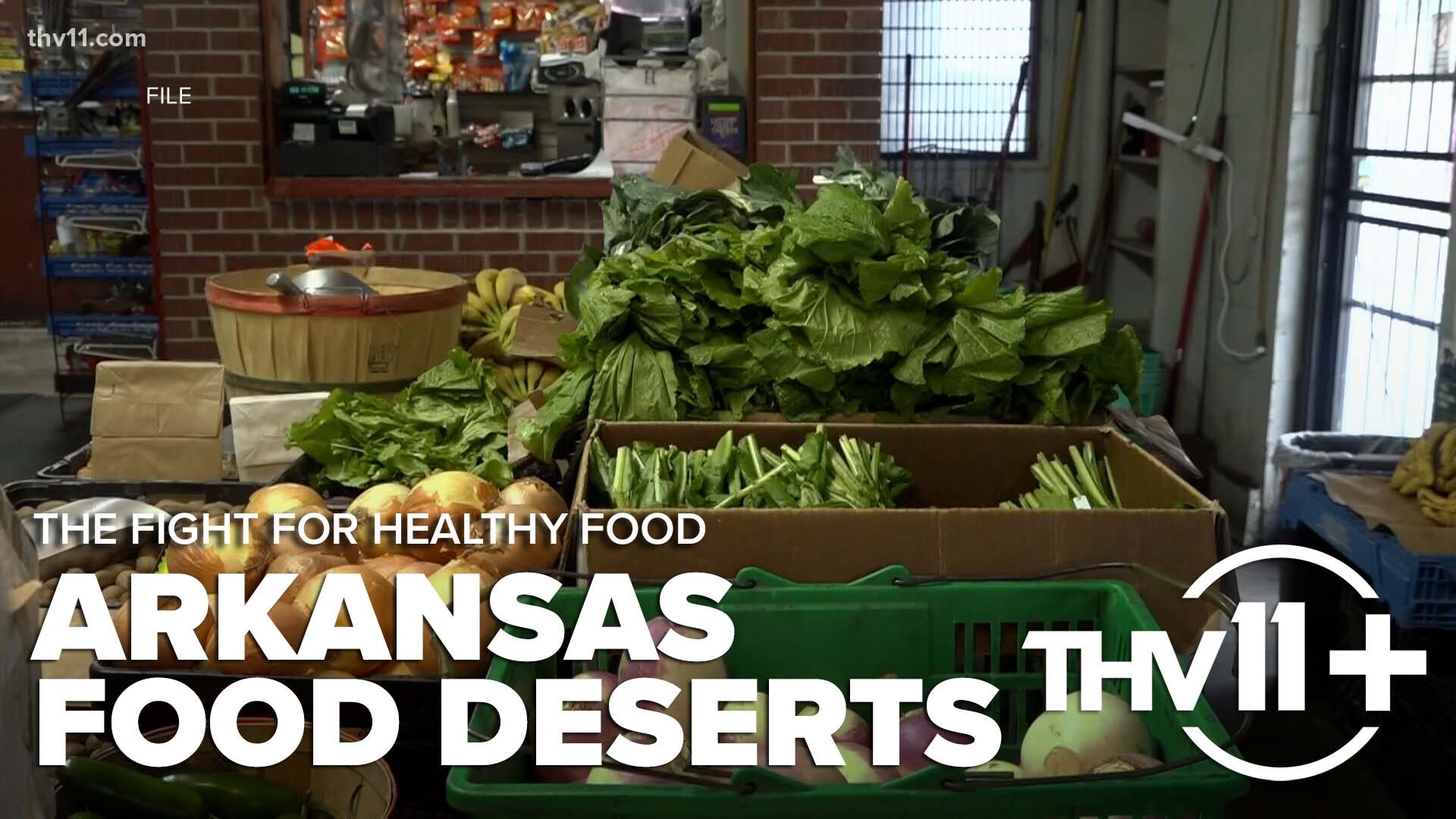LITTLE ROCK, Ark. — A new report released by the U.S. Department of Agriculture (USDA) has listed Arkansas as one of the worst states when it comes to food insecurity.
The study found that 16.6% of households in Arkansas experienced some type of food insecurity in 2022, which was ahead of other states like Louisiana, Mississippi, and Texas. The study interviewed over 1,700 households in Arkansas regarding their food security. USDA also said that 6.5% of households in the state experienced "very low" food security.
Arkansas's food insecurity rate is higher than the nationwide average of 12.8% in 2022. That is an increase from 10.2% in 2021 and 10.5% in 2020. Around 5% of households across the nation reported "very low" food security.
In December 2022, a group appointed by then Governor Asa Hutchinson released a report on food access in the state and provided some recommendations to "eliminate food deserts."
In that report, it noted that 62 counties in the state have "one or more communities that need improved access to food."
Among the solutions found in the report include expansion of online food ordering, self-service markets, and adopting a "grocery store as a public utility" method. The group cited four examples of those models from other states trying to solve food access problems.
The group also recommended the governor's office and legislature work to increase accountability in the state government to improve food access. That would include offering tax incentives for opening grocery stores in low income areas, improving access to state food benefit programs, and a legislative committee focused on food access.
“While the vast majority of Americans are able to affordably feed themselves and their families, too many of our neighbors struggle to put healthy food on the table," said Agriculture Secretary Tom Vilsack. "These numbers are more than statistics. They paint a picture of just how many Americans faced the heartbreaking challenge last year of struggling to meet a basic need for themselves and their children, and the survey responses should be a wake-up call to those wanting to further roll back our anti-poverty and anti-hunger programs."

